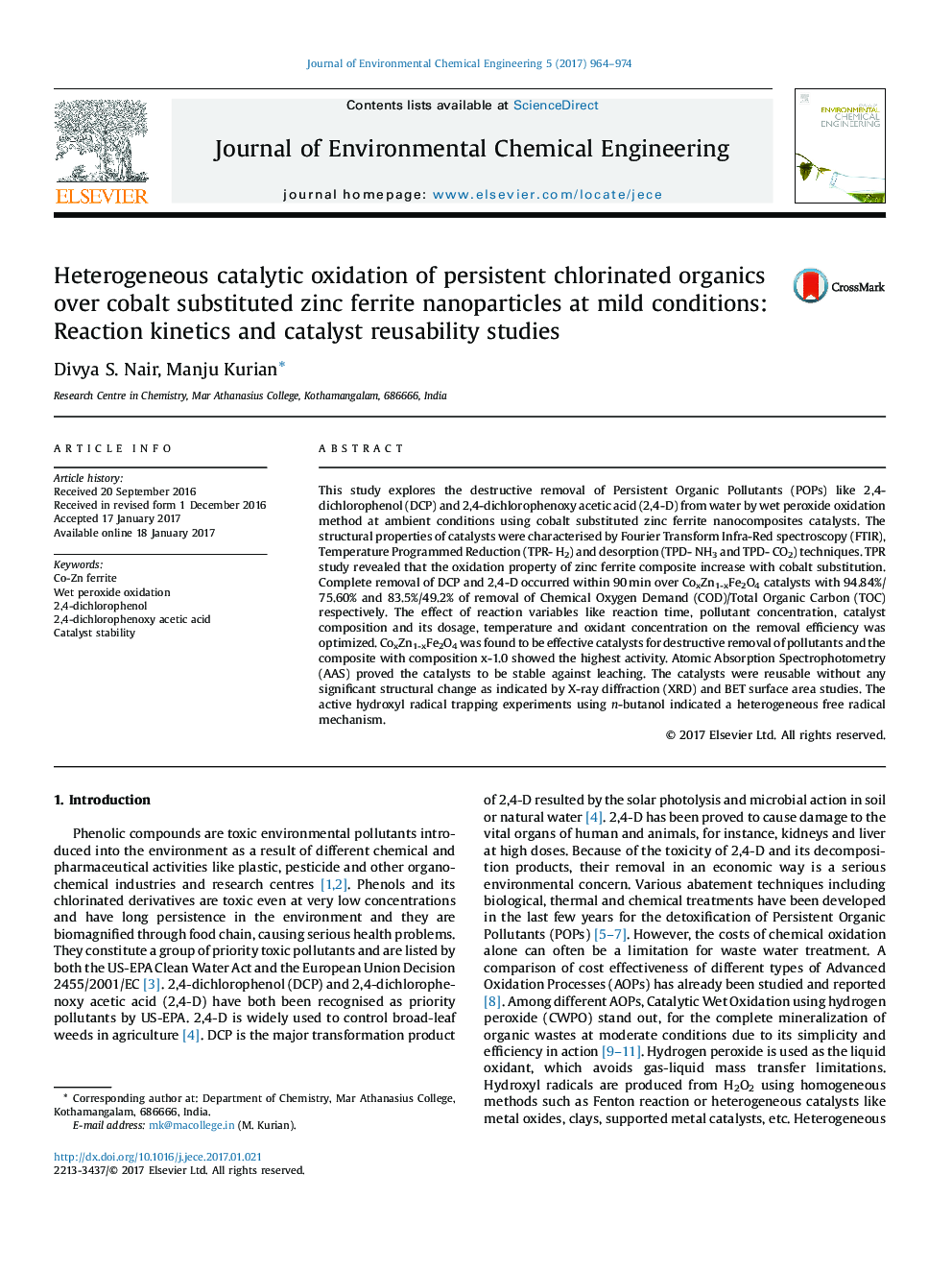| Article ID | Journal | Published Year | Pages | File Type |
|---|---|---|---|---|
| 6477541 | Journal of Environmental Chemical Engineering | 2017 | 11 Pages |
This study explores the destructive removal of Persistent Organic Pollutants (POPs) like 2,4-dichlorophenol (DCP) and 2,4-dichlorophenoxy acetic acid (2,4-D) from water by wet peroxide oxidation method at ambient conditions using cobalt substituted zinc ferrite nanocomposites catalysts. The structural properties of catalysts were characterised by Fourier Transform Infra-Red spectroscopy (FTIR), Temperature Programmed Reduction (TPR- H2) and desorption (TPD- NH3 and TPD- CO2) techniques. TPR study revealed that the oxidation property of zinc ferrite composite increase with cobalt substitution. Complete removal of DCP and 2,4-D occurred within 90Â min over CoxZn1-xFe2O4 catalysts with 94.84%/75.60% and 83.5%/49.2% of removal of Chemical Oxygen Demand (COD)/Total Organic Carbon (TOC) respectively. The effect of reaction variables like reaction time, pollutant concentration, catalyst composition and its dosage, temperature and oxidant concentration on the removal efficiency was optimized. CoxZn1-xFe2O4 was found to be effective catalysts for destructive removal of pollutants and the composite with composition x-1.0 showed the highest activity. Atomic Absorption Spectrophotometry (AAS) proved the catalysts to be stable against leaching. The catalysts were reusable without any significant structural change as indicated by X-ray diffraction (XRD) and BET surface area studies. The active hydroxyl radical trapping experiments using n-butanol indicated a heterogeneous free radical mechanism.
